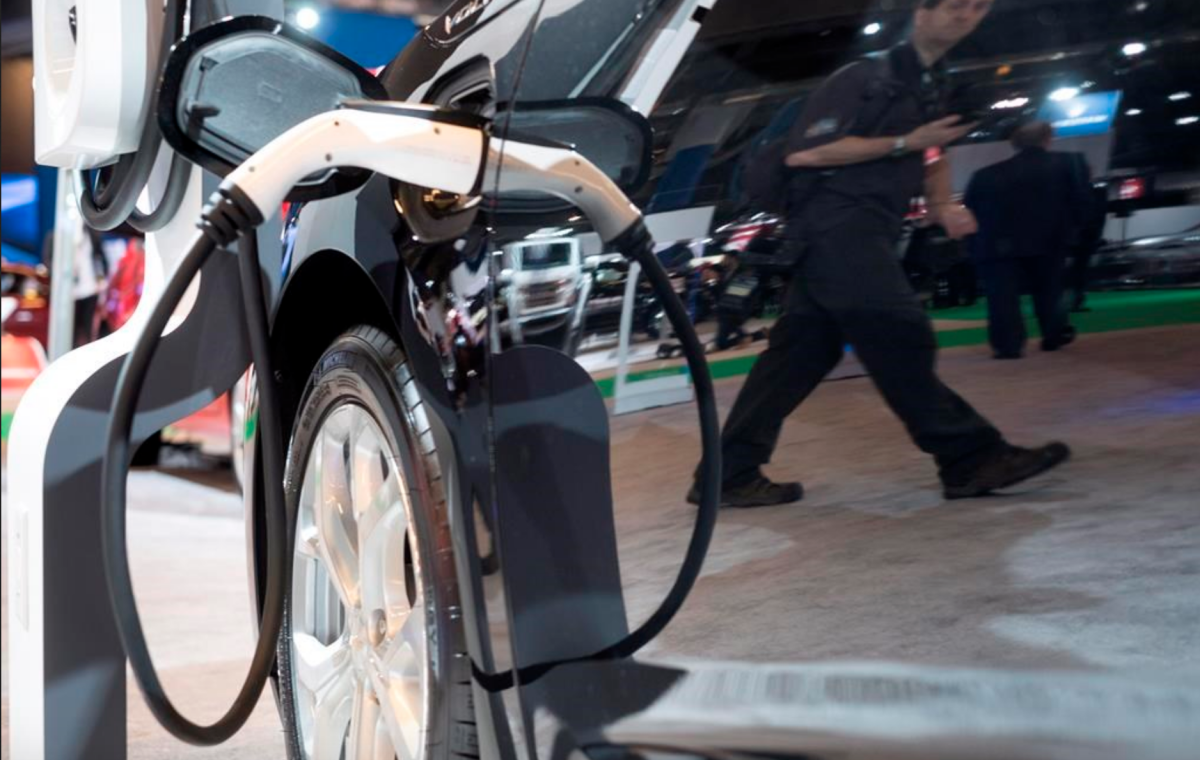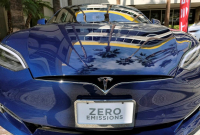Support strong Canadian climate journalism for 2025
The National Energy Board expects fossil fuel use to peak in the next two years, then decline as a mix of carbon pricing policies and climate-friendly technologies push Canadians to make different choices.
"Every time in the last 10 years that we've done a forecast, the projection for fossil fuel use keeps falling. Eventually you get to the point where it actually peaks out," the energy regulator's chief economist, Shelley Milutinovic, said Thursday.
Peak fossil fuel use by 2019 was a key projection in the the energy regulator's market assessment, released Thursday.
"This is two years out. It's not going to look a whole lot different. Just to put this into perspective, fossil fuel use in Quebec peaked in 2007. So this doesn't look any different than your car is a little more efficient, you're using less natural gas ... in your house," Milutinovic said.
The trajectory for less fossil fuel use is bendable, Milutinovic said, and depends on how people behave and whether there are significant technological breakthroughs in renewable energy. For now, "cars are more efficient, appliances are more efficient, industries have been taking steps to reduce their usage of fossil fuels, there's all kinds of activities, and that's expected to continue. And yes, the carbon pricing is another piece on top of that that encourages us to use less energy."


The government organization also said the rate of growth in wind and solar energy use will depend on technology developments in the future. Electric vehicle use is also expected to grow in the years to come, particularly in hydroelectricity-producing provinces such as Quebec, Ontario, Manitoba and British Columbia.
Though electric vehicles currently make up less than one per cent of all new vehicle purchases in Canada (0.6 per cent in 2016), the NEB also expects those sales to bump up slightly, to three per cent in 2020 and 16 per cent by 2040, if absolutely nothing changes. Some provinces already have incentives for going electric and next year Quebec has mandated that a percentage of vehicles sold must be electric.
In a "high technology" scenario, nearly half of the cars on the road in 2040 could be electric.

The NEB's high-tech scenarios include include less expensive solar and wind power technology, better interprovincial exchange of electricity, more people driving electric vehicles, cleaner oil sands technologies, more electricity-powered heating in residential and commercial buildings, and more use of carbon capture and storage technology attached to coal-fired power generation.
For policymakers, Milutinovic said, "it's just one more piece of information that's on the table, it encourages the discussion around, you know, what's the trajectory that we want and how are we going to get there."

Despite the expected peak-decline trajectory of fossil fuel demand, and flattened oil prices, the NEB also projected continued and growing production of oil, including in-situ bitumen products.
"Based on those oil prices, our oil production is still economic. So that allows oil production to increase in this scenario," Milutonivic said.
Natural Resources Minister Jim Carr said Canada is in a transition to a low-carbon economy but the report confirms Canada's strategy that the country isn't going to stop needing fossil fuels anytime soon.
"Oil and gas will be produced in Canada for quite some time while we're in this transition," Carr said.
— With files from The Canadian Press






Comments